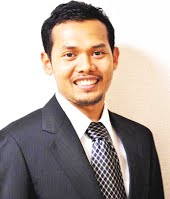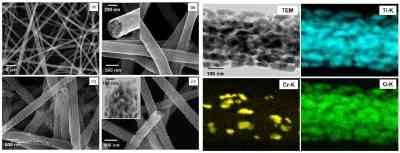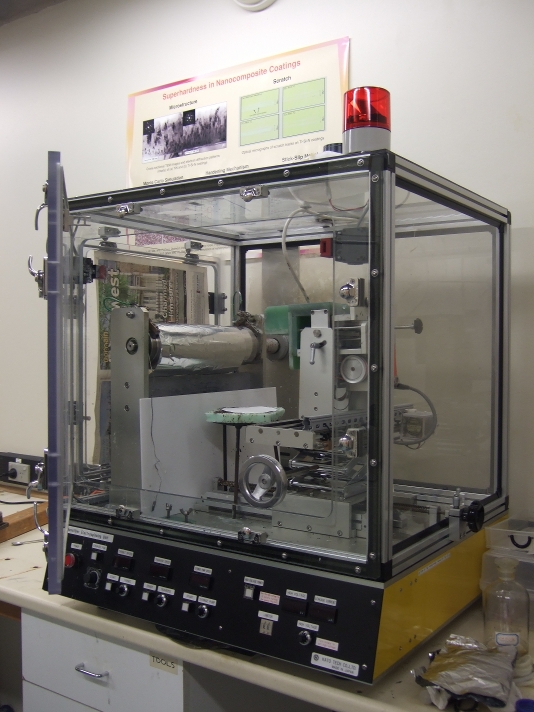Muhammad Miftahul Munir, Dr. Eng.: Develops Nanotechnology for Generating National Independence

 BANDUNG, itb.ac.id - Nanotechnology nowadays grows so fast and becomes important breakthrough for Human necessities. This technology is expected to become solution for various problems faced by human now and in the future. Nanotechnology can be applied in extremely various fields such as science, engineering, medical, energy production and conservation, electronic, etc.
BANDUNG, itb.ac.id - Nanotechnology nowadays grows so fast and becomes important breakthrough for Human necessities. This technology is expected to become solution for various problems faced by human now and in the future. Nanotechnology can be applied in extremely various fields such as science, engineering, medical, energy production and conservation, electronic, etc. Very small things (one-billionth meter) and engineering to produce new nanoscale products with different properties from large-scale products of the same material are objects of nanotechnology. For example, Carbon Nano-Tube (CNT) that is very light but has strength a hundred times more than steel. Nanotechnology development has vast impact for life so that many countries compete to invest in development of this technology. In Indonesia, productions of nanotechnology-based products for fulfill people needs are increasing vastly nowadays. Moreover, many researches in nanotechnology have been applied by Industries.
 As university that develops technology, ITB also have conducted researches in nanotechnology. One of nanotechnology researchers in ITB is Muhammad Miftahul Munir, Dr. Eng. Miftah that has graduated Bachelor's Degree and Magister in Physical Instrumentation ITB and graduated Doctoral Program in Hiroshima University studying Nanotechnology, is now lecturer in Physics ITB. Not only Miftah but also Prof. Dr. Eng. Khairurrijal, Prof. Dr. Eng. Mikrajuddin Abdullah, and Dr. Eng. Ferry Iskandar, together they have held many researches in nanotechnology. Few examples of yields of these researches are nanotechnology application in Food, Health and Drugs (PKO) and nanotechnology for air and water filter. There are at least thirty students under Miftah's guidance that is doing researches in Nanotechnology and Instrumentation.
As university that develops technology, ITB also have conducted researches in nanotechnology. One of nanotechnology researchers in ITB is Muhammad Miftahul Munir, Dr. Eng. Miftah that has graduated Bachelor's Degree and Magister in Physical Instrumentation ITB and graduated Doctoral Program in Hiroshima University studying Nanotechnology, is now lecturer in Physics ITB. Not only Miftah but also Prof. Dr. Eng. Khairurrijal, Prof. Dr. Eng. Mikrajuddin Abdullah, and Dr. Eng. Ferry Iskandar, together they have held many researches in nanotechnology. Few examples of yields of these researches are nanotechnology application in Food, Health and Drugs (PKO) and nanotechnology for air and water filter. There are at least thirty students under Miftah's guidance that is doing researches in Nanotechnology and Instrumentation.
Nanotechnology-Based Air Filter
Clean air is needs of all human. To the contrary, Air pollution produced by imperfect combustion, chemicals, bacteria or virus is very harmful for human health. This problem demanded air filter that can produce clean air. One of Miftah's focus researches in nanotechnology is nanofibre application for air filter. There are two important physical parameters which lead quality of air filter becomes good. They are efficiency and pressure drop. Due to nanotechnology that can be applied to produce low-density air filter, these two criteria can be accomplished. Therefore, nanoscale particles can be filtered but air still can flow with less energy.
 Air filter membrane is created from nanofiber material produced by electrospinning technic. This technic has been developed by Miftah and his colleagues since they studied in Japan. Through constant-current electrospinning system, uniform and high quality nanofibre can be produced. Until now, Miftah and his colleagues have developed various types of nanofibre membrane fabrication such as conventional electrospinning, multinozzle electrospinning and drum collector, multisyringe electrospinning and conveyor belt collector, electrospinning without nozzle, and rotary-force spinning. They themselves created these devices from local components.
Air filter membrane is created from nanofiber material produced by electrospinning technic. This technic has been developed by Miftah and his colleagues since they studied in Japan. Through constant-current electrospinning system, uniform and high quality nanofibre can be produced. Until now, Miftah and his colleagues have developed various types of nanofibre membrane fabrication such as conventional electrospinning, multinozzle electrospinning and drum collector, multisyringe electrospinning and conveyor belt collector, electrospinning without nozzle, and rotary-force spinning. They themselves created these devices from local components.
The most challenging thing in development of nanotechnology-based air filter is difficulty to obtain aerosol-based device to test air filter in Indonesia. To overcome this problem, Miftah and his partners have developed step by step their own testing device supported by their experiences in Instrumentation and Aerosol fields. Particular parts of this device that haven't been developed in Indonesia will probably be developed and produced in collaboration with Japan researchers.
Generates National Independence
Nanotechnology development in Indonesia can be conducted faster if continual and sustainable researches are held. Miftah views that instrumentation and nanotechnology are tools for increase added value of technology products. Miftah hopes those products can be produced by local industries so that can reduce Indonesia's dependence on foreign country. "science-oriented basic research and application-oriented research have to be run in synergy, "Miftah said. "we can't continually let tools and materials that we need come from foreign countries because it improves our dependence. Important goal that we have to consider is results of our science and researches are only for national independence in all fields."

scan for download






